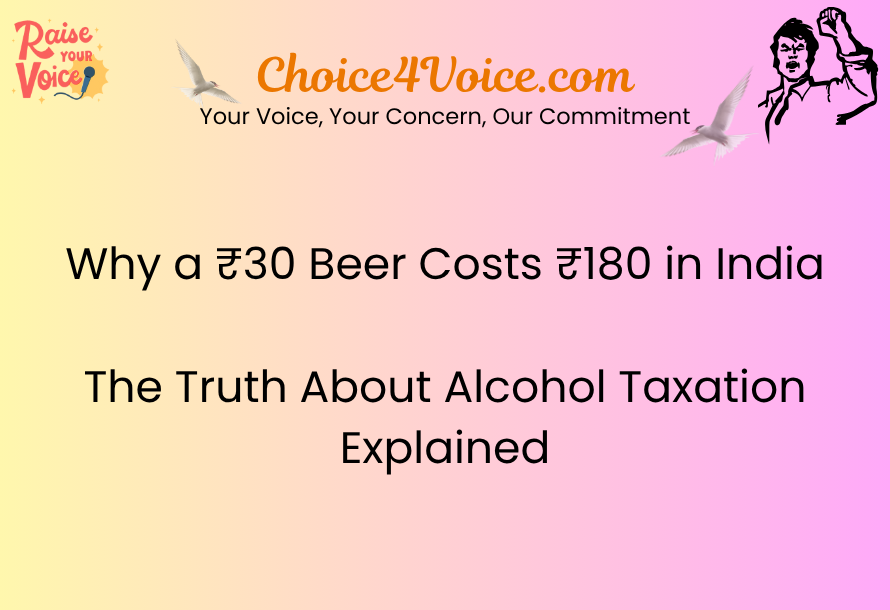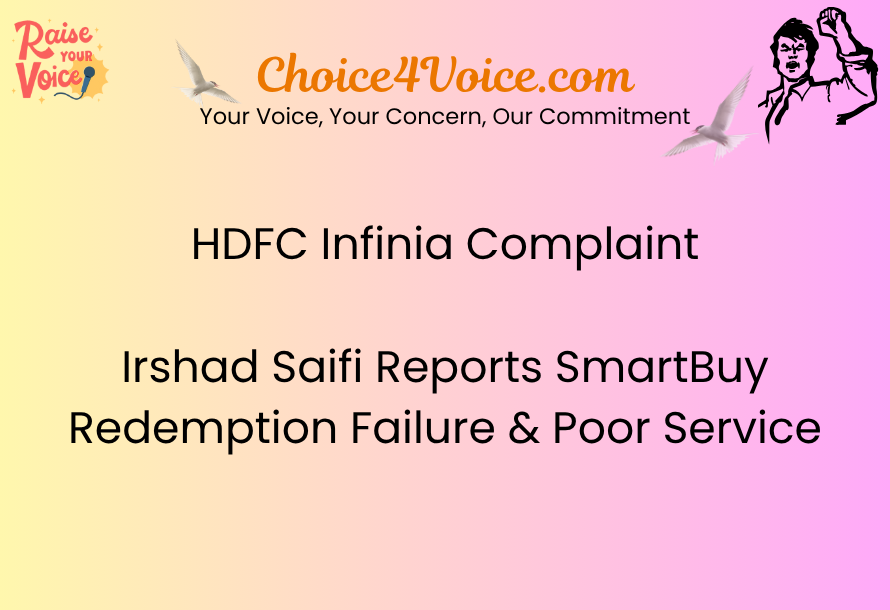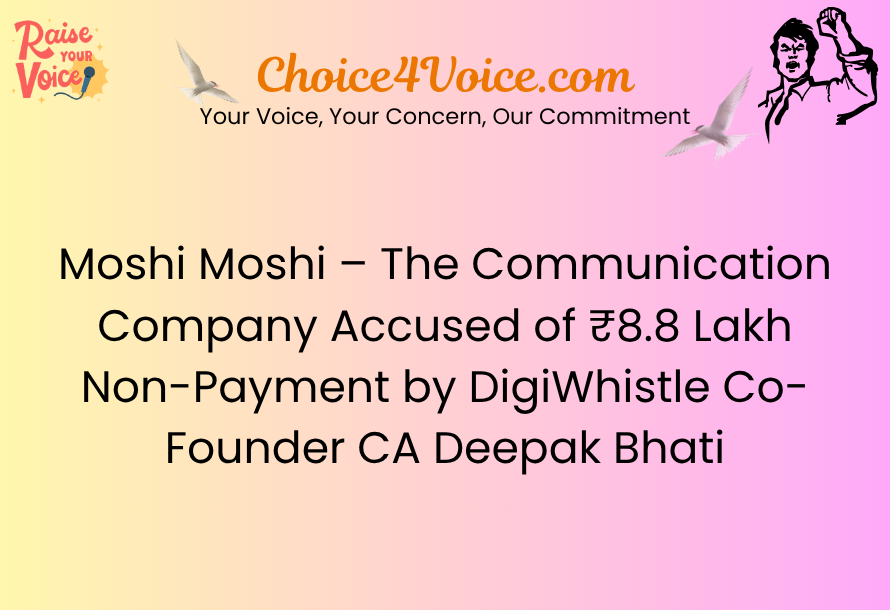If you’re experiencing this problem with this brand or any other company, submit your complaint and we may feature it on Choice4Voice.com.
Submit your complaint →Ever wondered why a ₹30 beer costs ₹180 in India? This article breaks down how taxes like excise duty and VAT make alcohol one of the most heavily taxed products in the country. Learn the detailed price structure, the logic behind India’s high alcohol taxes, and what it reveals about state revenue and consumer economics powered by insights from Choice4Voice.com
Introduction
If you’ve ever bought a bottle of beer in India and wondered why it costs six times its manufacturing price, you’re not alone. A ₹30 beer often ends up retailing for ₹180 or even more not because of brand value or ingredients, but due to India’s complex taxation system.
In this article, we break down the exact reasons why alcohol especially beer is taxed so heavily in India, and what that means for both consumers and the economy.
Beer Price Breakdown in India
| Cost Component | Approximate Amount (₹) | Percentage of Final Price |
|---|---|---|
| Base Cost (Raw Material + Brewing + Packaging) | ₹30 | 17% |
| Excise Duty (State Tax on Alcohol) | ₹70 | 39% |
| Value Added Tax (VAT) | ₹35 | 19% |
| Distributor & Retail Margins | ₹20 | 11% |
| Transport & Handling | ₹10 | 6% |
| Company Profit | ₹15 | 8% |
| Total (Final Retail Price) | ₹180 | 100% |
Result: Over ₹120 out of ₹180 goes directly to the state government in the form of excise duty and VAT making alcohol one of the highest-taxed consumer goods in India.
Why Is Alcohol So Heavily Taxed in India?
- Major Source of State Revenue
- State governments depend heavily on excise revenue from alcohol to fund health, infrastructure, and welfare programs.
- In many states, 30–40% of annual revenue comes from alcohol taxation.
- Discouragement Policy
- Alcohol consumption is discouraged socially and legislatively.
- High prices act as a deterrent under the guise of “public health,” while still maintaining revenue inflow.
- Non-GST Product
- Alcohol is excluded from the Goods and Services Tax (GST) framework.
- Each state sets its own tax rates, leading to huge price variations across India.
- Political and Moral Balancing Act
- Politically, alcohol taxes are a balancing act states rely on revenue but face social pressure to limit consumption.
Top States with the Highest Alcohol Taxes (2025 Estimate)
| State | Average Tax Burden (%) | Notable Rule |
|---|---|---|
| Tamil Nadu | 70–75% | State-controlled TASMAC retail monopoly |
| Karnataka | 65–70% | Additional special duties on beer |
| Maharashtra | 60–65% | City-specific local body taxes |
| Delhi | 55–60% | Frequent excise policy revisions |
| Uttar Pradesh | 60–70% | Dual taxation on premium brands |
How High Alcohol Tax Impacts Consumers and Businesses
For Consumers
- Reduced affordability: Alcohol becomes a luxury even for middle-income groups.
- Increased illegal trade: High taxation encourages black-market sales.
- Cross-border purchases: Consumers often buy from neighboring states with lower tax rates.
For Businesses
- Tighter profit margins: Manufacturers earn minimal profit despite high retail prices.
- Reduced consumption: Lower sales volume despite rising per-unit value.
- Compliance pressure: Multiple state-level excise laws increase administrative costs.
Global Comparison: Alcohol Tax Rates
| Country | Tax Share in Retail Price | Remarks |
|---|---|---|
| India | 65–70% | Among the highest in the world |
| USA | 15–20% | Federal + State taxes combined |
| UK | 30–40% | Includes duty + VAT |
| Australia | 35–45% | Taxed by alcohol content |
| Japan | 20–25% | Uniform national policy |
India’s taxation rate on alcohol easily ranks among the top three globally, making it far costlier for consumers compared to developed economies.
What Consumers Should Know
- Alcohol pricing is not purely brand-driven most of what you pay is tax.
- Beer and spirits face different duty structures, often varying every fiscal year.
- Alcohol companies in India often have limited control over retail pricing due to government-regulated markups.
- The taxation structure means that states profit more than producers.
How Choice4Voice.com Empowers Consumers
At Choice4Voice.com, we believe that financial transparency is consumer empowerment.
Our mission is to simplify complex consumer economics whether it’s taxation, hidden fees, or unfair pricing and give people the knowledge they need to make smarter spending choices.
We help consumers by:
- Explaining complicated policies in simple terms.
- Exposing hidden charges and unfair practices.
- Encouraging consumers to speak up about deceptive or unclear pricing.
- Connecting financial advisors and public advocates to spread awareness.
Choice4Voice.com is India’s fastest-growing consumer advocacy platform, bringing verified complaints and real economic insights to public attention.
Author
Sv Varun is an Independent Financial Advisor with deep expertise in credit cards, loans, and insurance. He helps families and individuals make smarter financial choices and understand the economics behind everyday products. His insights have educated thousands about personal finance, taxation, and responsible spending.
Frequently Asked Questions
Q1. Why is beer so expensive in India?
Because over two-thirds of the price goes toward state taxes like excise duty and VAT.
Q2. How much tax is charged on alcohol in India?
Typically between 60–75% of the retail price, depending on the state.
Q3. Is alcohol under GST in India?
No, alcohol is exempt from GST and taxed separately by each state.
Q4. Which state has the highest alcohol tax in India?
Tamil Nadu and Karnataka are among the highest, taxing over 70% of the retail value.
Q5. Do beer companies earn big profits in India?
No, their margins are small; most profits go to the government via taxes.
Q6. Why does the government charge so much tax on alcohol?
To generate revenue while discouraging excessive consumption.
Q7. What is excise duty on alcohol?
A state-imposed tax on the manufacture or sale of alcoholic beverages.
Q8. What is VAT in alcohol pricing?
Value Added Tax, charged on top of excise duty before the final retail price.
Q9. Does alcohol taxation vary across India?
Yes, every state has its own excise policy and rate structure.
Q10. Is alcohol price regulated by the government?
Yes, in most states prices are fixed or approved by excise departments.
Q11. Why is the base cost of beer so low compared to retail?
Production costs are minimal, but layered taxes multiply the final price.
Q12. Can taxation make alcohol a black-market product?
Yes, high taxes encourage illegal trade and smuggling.
Q13. How much of the alcohol price goes to the manufacturer?
Only around 15–20% after costs and profit.
Q14. Do alcohol taxes support public welfare?
Yes, excise revenue funds health, education, and infrastructure projects.
Q15. Are imported liquors taxed more than domestic ones?
Yes, imported alcohol faces customs duties plus state excise taxes.
Q16. How often are alcohol taxes revised?
Usually every financial year through the state excise budget.
Q17. Can citizens question state alcohol taxes?
Yes, under RTI or public feedback channels for excise departments.
Q18. Are alcohol prices likely to rise in 2025–26?
Yes, many states are planning further excise hikes.
Q19. What role does Choice4Voice.com play in such awareness?
It helps consumers understand pricing, taxation, and file complaints against unfair policies.
Q20. How can I learn more about India’s taxation on daily goods?
Visit Choice4Voice.com for regularly updated explainers on consumer economics and price transparency.


